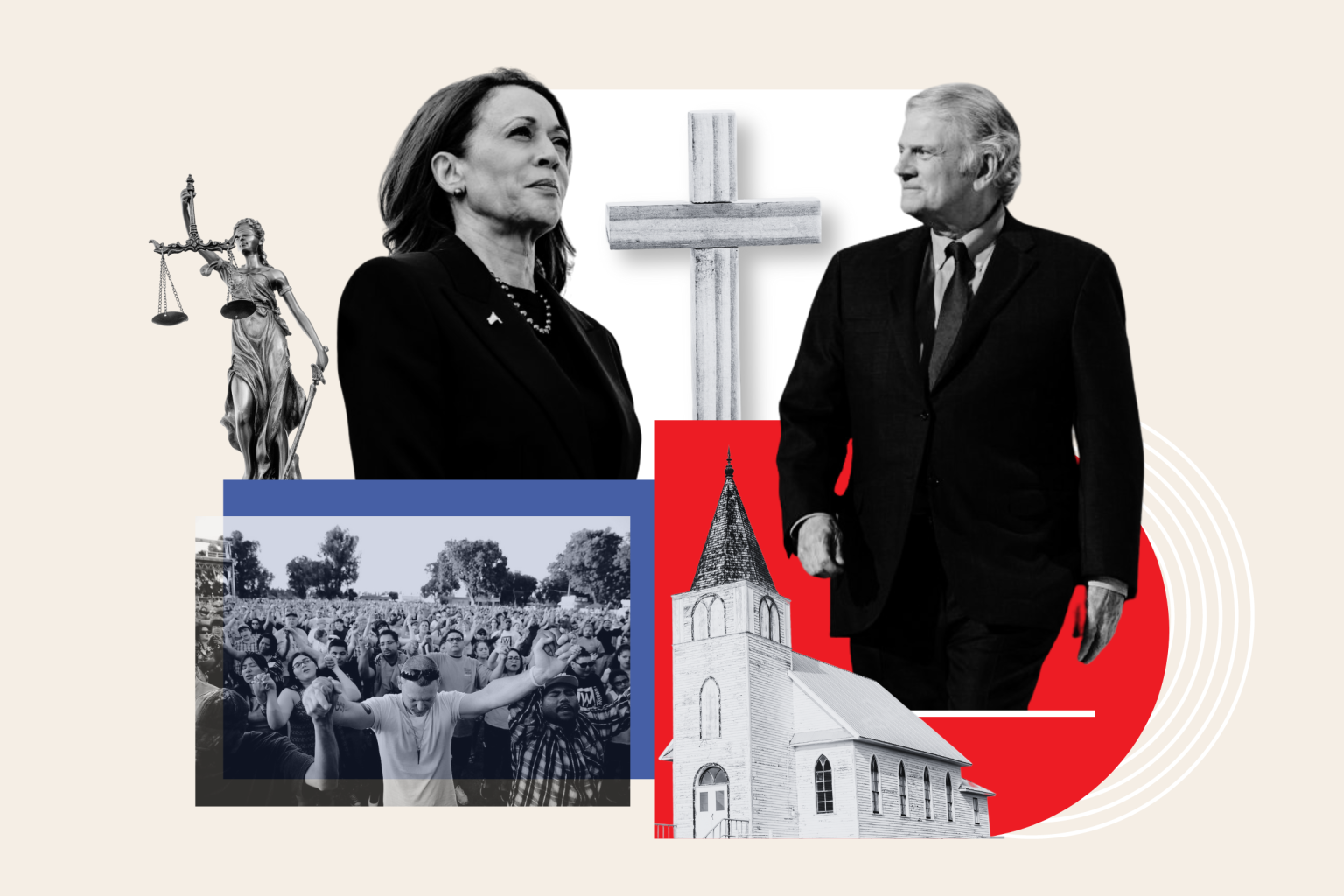Evangelicals for Harris released an ad intertwining remarks made by former President Donald Trump with a sermon by the Rev. Billy Graham, warning of self-centeredness, greed, and pride in the last days. Trump’s comments about greed, arrogance, and impulsivity were contrasted with Graham’s biblical wisdom, all to urge evangelical voters to not support Trump in the upcoming presidential election. The ad is part of a $1 million campaign aimed at convincing evangelicals to vote for Vice President Kamala Harris instead of Trump or abstaining.
The Rev. Franklin Graham, son of Billy Graham and a longtime Trump supporter, criticized the use of his late father’s footage in the ad. He emphasized that Billy Graham appreciated the conservative values and policies of Trump in 2016, and if alive today, would still support him. Franklin Graham and the Billy Graham Evangelistic Association have taken steps to halt the use of the footage, claiming it is an unauthorized and political misuse of copyrighted material. Evangelicals for Harris has received warnings from Graham’s lawyers demanding they cease using the footage.
Evangelicals for Harris defended their ad by stating that they seek to highlight Trump’s behavior in comparison to biblical teachings and values. They argued that the footage falls under fair use protections and is essential in discussing the moral failings of Trump in light of evangelical principles. The group believes that the ad serves to encourage voters to align with biblical wisdom when choosing their candidate, particularly given the contentious nature of the upcoming election.
In response to the controversy, experts noted the division within the evangelical community regarding political allegiances. While many white evangelicals strongly support Trump, Evangelicals for Harris aims to sway evangelical voters who may be disillusioned with the current administration. The group’s strategic targeting of evangelical voters in swing states reflects a broader attempt to potentially influence the election outcome through shifting evangelical allegiances.
Critics of Evangelicals for Harris questioned the effectiveness of their efforts in swaying evangelical voters away from Trump. Some experts doubted the group’s ability to significantly impact evangelical voting patterns, highlighting the entrenched alliance between white evangelicals and the GOP. Despite the skepticism, Evangelicals for Harris remain confident that their messaging aligns with biblical values and ethics, presenting Harris as a candidate embodying these principles more closely than Trump.
Ultimately, the debate surrounding the ad reflects broader discussions within the evangelical community about the role of faith in politics and the alignment of values with candidates. As Evangelicals for Harris continue their campaign, they aim to present Harris as a candidate promoting compassion, integrity, and protection of the vulnerable, contrasting with what they perceive as Trump’s divisive and self-serving leadership. The upcoming election will test the influence of evangelical voters and the impact of appeals to biblical teachings in shaping their political decisions.


